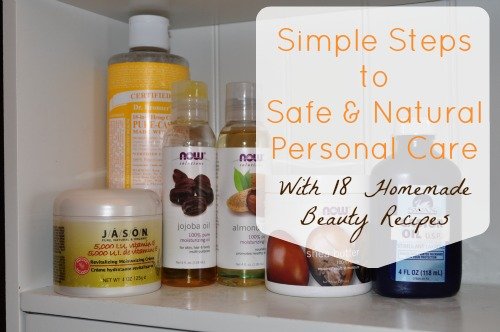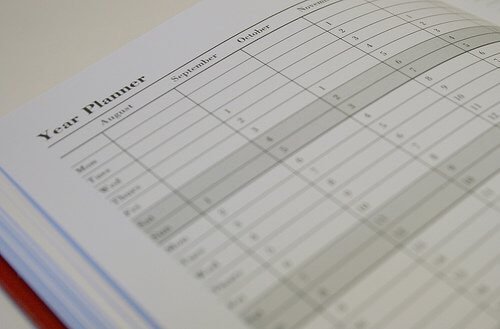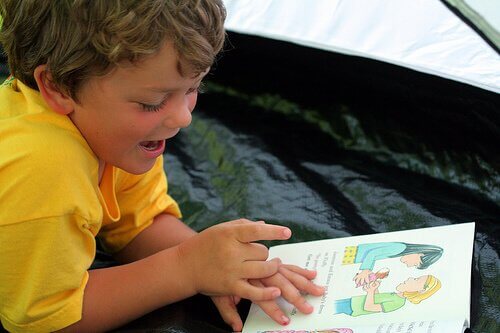Homesteading in Suburbia – Five Easy Ways!

Guest Post by Scott Morefield
Rolling pastures in the middle of nowhere. A silo shading a barn full of dairy cows. Chickens clucking in the yard. A gigantic garden guarded by an imposing scarecrow, just a bit higher than the corn stalks waving in the wind. A farmhouse right out of the 1880’s, surrounded by a wrap-around porch and a white picket fence…
Maybe this is the reality you are surrounded by every day, right up to Grandma sitting on her front porch rocking chair, stringing beans and humming ‘Amazing Grace.’ If so, the rest of us envy you (in a good way, of course, if there is such a thing as ‘good’ envy :)). The rest of us are probably somewhere between that picturesque setting and a big city, cookie-cutter apartment surrounded by a concrete jungle. Most of us are, in fact, probably on a ¼-1 acre lot smack dab in the middle of Suburbia, USA.
We don’t share the same surroundings, to be sure, but many of us doubtless share a longing, however repressed, to be free, unrestrained, and self-sufficient.
Dependency, whether on government or even on the services we all count on to live our daily, comfortable lives, is certainly the order of the day.
We are dependent on electricity from a grid that is getting older and more vulnerable each day, on a running water supply dependent on said electrical grid, on supply lines that deliver a few days’ worth of food and supplies to store shelves, lines entirely dependent upon the free and unrestrained flow of oil from countless volatile sources, any of which could close for multiple, very plausible reasons.
In short, given all the things we are dependent upon, the thought of taking back a portion of that dependency, of living on said picturesque farm in the middle of nowhere, can be a pleasant one indeed, especially to anyone who has truly taken into account the volatile state of the world these days.
Even if you can’t create the ideal, independent life for yourself right now, all of us can certainly take SOME steps toward that old-fashioned self-sufficiency that our grandparents once had.
Here are a few ways to begin homesteading in suburbia:

1. Grow some of your own food.
However you do it, growing a portion of your own food has unlimited benefits. Not only do you reap the rewards of eating nutrient-rich food free of harmful industrial pesticides, but you also save money!
There are so many ways to grow your own food, regardless of where you live – traditional backyard gardens, raised beds, pots, edible landscaping, fruit trees/bushes, etc.
For example: beautiful landscaping may be pleasing to the eye, but why not make it functional as well? We love to plant blueberry bushes, strawberries, and herbs in our landscaping right beside and around our other plants.
And instead of planting another useless shade tree, we planted some peach, apple, and plum trees around the yard. If trees are going to take up space in our yard and drink the rainwater that falls on our property, why not make them produce something useful for our family?
There are few things more fulfilling than taking a bite out of a juicy, sweet, unbelievably tasty tomato that you just grew yourself. The difference in taste between those and the ones picked green and shipped from Central America or halfway across the country is absolutely astounding.

2. Collect water in rain barrels.
Few things in life are free, but rain water is one of them. Why not utilize it for your homestead? From 300+ gallons to 50 or less, these days, rain barrels come in every imaginable shape, color, and size.
Depending on where you shop and what you want to spend, they can look great in any landscaping design and in any neighborhood, catching the free, nutrient-rich water off your roof so you can use it to water your garden when it’s NOT raining. It’s great to be able to water your garden and other plants with rainwater even during times of drought.
Combined with a solid water-filtration system, rain barrels are also a renewable hedge against water shortages. Just one inch of rain will yield 623 gallons of water per 1,000 sq. ft. of coverage.
3. Practice basic preparedness.
Expand that pantry. Put some extra shelves in the garage. Learn to can. Learn to dehydrate.
When you go to the grocery store, buy two of every basic item instead of one. Eat what you store, and store what you eat. Little by little, and pretty soon you will be amazed at how much food you are able to put away. In this age of inflation, even if nothing goes wrong you’ll still earn more of a return on your money by purchasing food than most other investments.
4. Make your own bread.
Today’s store-bought bread is made from refined flour devoid of all the wheat’s original nutrients. They may put a few back in, but that’s still a lot of empty calories for such a significant portion of most of our diets. Learning how to grind your own wheat and make your own bread products is both a money-saver and a way to turn empty calories into a vitamin-rich staple your family will enjoy fresh, day after day.
5. Raise your own chickens.
Our family hasn’t gone there yet, but we plan to soon. Many municipalities, even larger cities, will allow residents to keep chickens in their back yards, so long as they are well maintained and (likely) rooster-free. What a wonderful way to get fresh eggs and fertilize your garden!
BONUS: Renewable energy.
Whether it’s a small solar battery charger or an entire roof-top system, obtaining some form of renewable energy will make you feel better in these uncertain times. The costs are gradually starting to come down, so systems that would have been too expensive for most budgets could be obtainable now.
It’s a step-by-step process, and it won’t all happen overnight, but the peace of mind that comes from grabbing back even a little bit of self-sufficiency from today’s crazy world is truly worth every step we take!
What are some ways you’ve been able to homestead in suburbia? What are new homesteading options you’d like to try?
Scott’s articles have appeared on A Biblical Marriage, Natural News, Infowars, Wakeup-world, The Daily Sheeple, and many other sites, including A Morefield Life, where he and his wife, Kim, share their marriage and parenting journey. They and their four small children live in the hills of east Tennessee. You can also find him on their Facebook page.






Great ideas! I hope to be implementing some of them soon.
Just a note on “rain collecting”…Make sure you check with local jurisdictions before you collect rain water. A whole lot of places have made it against the law to do so. You don’t want your utilities reader to turn you in and get thousands of dollars in fines against you. Please check.
Kathy is right. Rain collecting is illegal where we live. Probably because we don’t get a whole lot of rain. 😉
WOW! REALLY? That’s is a crying shame that any city can tell you to not collect something that is given to us by nature and is 100% FREE. What next? You won’t be able to breath air for fear of a tax or fine?
Just curious, what would be the reason they ban collecting rain water and what cities have you heard of that do that?
Kristin, I think that in areas with high drought risk, they are trying to keep the local water table high so the city can maximize usage.
Wow, I just am not sure how that works. The water would sink into the peoples lawn anyway, so how does that help to keep water tables high? Sorry, I did not mean to start a huge discussion on this here, I just was SHOCKED when i saw that and wanted to know more about it. Thanks!!
Praise God, I live in southern Ca and we only get a tid bit of rain each year but we can collect rain water. I think I am going to give this a try next spring.
I agree with Kristin. ‘Laws’ like that are, obviously, completely absurd and should be strongly opposed. I think many of these laws (mainly in Colorado now… in Sante Fe, NM, for example, rainwater harvesting is mandatory for new dwellings!) go back to 1800’s water rights issues, until 2007 when a study was done showing that 97% of precipitation never even reached a stream. CO has since eased the law somewhat…
Okay, so I had to laugh a little when I read the first paragraph on what an ideal small farm is like. We also have biting flies, chickens pooping in places they shouldn’t, and randy ducks, ha ha! Sometimes I look back when I lived in a neighborhood and think of the good ol’ days! One of the great things about homesteading in a neighborhood is the opportunity to interact, share, and learn from other neighbors. Something to add to the next list! 😀
LOL well I did mean to go for the ‘ideal’ image. 🙂
You know you are right! We have grown our garden this year and the kids are loving watching it go wild (I’m not the greatest gardener…lazy a bit so it’s wild) with tomatoes and beets and lettuce etc. We also have had ducks for a few years now. The one thing I would suggest with everyone who wants farm animals is to double check with the city and maybe even your neighbors, especially if you want duck eggs. Females tend to be a bit noisier then the males. I never thought about collecting rain water. Great idea, but we will have to wait till next spring (California does not get much rain).
I think if everyone just put a tiny bit of time into the above you wrote about there would be a great appreciation for what God has given us that we so easily pay for monthly! Plus we get a chance to teach out kids how to save. Most of us probably grew up in the 80’s which was the time of spend, throw away and use not save. And we are paying the price now. Time to take back what we so freely threw away 20 years ago. Thanks for the inspiring article.
Thanks for the encouraging words, Kristin – amen!
I like your ideas, and I wish they could all apply to me! This year we attempted a garden and it was a terrible disaster – almost $30 in seeds essentially wasted, really. Chickens are illegal to keep in our town as well – although they sound like fun. And for those of us on a budget who rent – well, installing a rooftop alternative energy system is just not feasible.
If disaster preparedness for your family is the primary goal, my suggestions would be to slowly begin purchasing items that would help with that, such as cast iron cookware that can be used over an open fire, sturdy air-tight storage containers, etc. Food storage is only one way (and not an end-all solution) to preparedness. Consider educating yourself in foraging techniques, and slowly begin switching over to less industrialized practices. Hang your laundry to dry. Even in the cooler months – find a way. The next time you need to purchase a washer, consider a hand-cranked one, or an antique version with all -metal parts for easier repair. Learn auto mechanics. Learn how to ride and harness a horse.
Now, if it’s a farm dream you’ve got – I think canning and preserving food is a GREAT way to start. As is sewing, knitting, beekeeping, learning how to harvest manually (with a scythe) and with a tractor. For that matter, saving and purchasing a riding tractor with farm attachments. It wouldn’t hurt to learn some fishing and hunting skills, either. With a bow, if you’re interested in doing it the ‘old fashioned way’. Although modern bows are very technical. Even just taking your family camping, or berry picking, or trying to use green apples instead of pectin…every tiny step helps.
I love this blog post! My husband and I just got 6 baby chicks, and we’re so excited to start this journey of owning our own chickens and getting our own eggs. Yay! We just planted blackberry and raspberry plants in the front yard, and I am inspired to consider buying more food plants and putting them in pots in the back yard, since it’s cement. 🙁 We did raised beds a few years ago, but since it was over said cement in the backyard, the earth wasn’t deep enough to grow hearty plants. I’ve got to figure out some other way to do a vegetable garden! I guess potted plants are the way to go… We dehydrate extra food to take with us when we go backpacking (we live in CO). So I am thinking canning is next on my list!!! 😀
I imagine the reason for not collecting rain water is that they’re afraid it might attract mosquitoes which carry diseases.
Really enjoyed this post! I have been catching up on posts I have flagged during the last month or two. We have chickens and a garden. I am in the process of setting up a rain collection system similar to the one pictured in this post. I have found the chickens and garden to be very educational for our children. They learn to appreciate food much more when they see where it comes from and how hard it can be to produce. Our efforts are definitely a fun hobby for our family. We have even setup a streaming cam in the chicken coop because so many of our friends are curious about our chickens…haha. Thanks for your great post Scott!